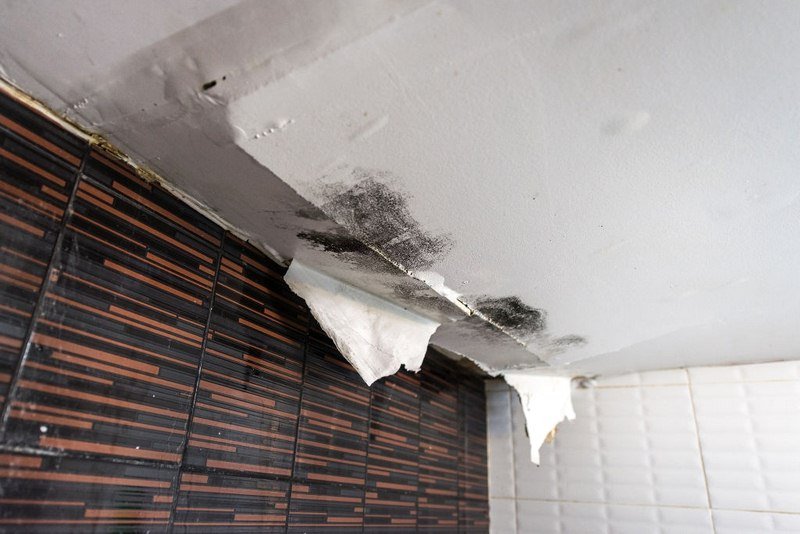Your Home's Most Frequent Triggers of Leak Problems: Thorough Investigation
Your Home's Most Frequent Triggers of Leak Problems: Thorough Investigation
Blog Article
This article in the next paragraphs about How Fast Water Damage Can Ruin Your Home is really insightful. Read it for your own benefit and decide what you think about it.

Leaks not just cause waste of water however can likewise trigger unneeded damages to your residence and promote undesirable organic growth. By recognizing and also looking for day-to-day situations that create leaks, you can protect your residence from future leaks and unneeded damages.
Trespassing origins
Most water leaks start outside your house as opposed to inside it. If you observe a sudden decline in water pressure, state in your faucet, require time to head out and also examine your yard. You may discover damp spots or sinkholes in your yard, and that might suggest that tree roots are invading water lines creating water to leak out. You can have your plumber look for invasion, especially if you have trees or bushes near your residential property.
Rusty water supply
As time passes by, your plumbing system ages as well as rust such as rust may begin eating away the pipes. This could be the cause of staining or bending on your water pipes. This calls for an inspection with your plumber right away. If our plumbing system is old, consider changing the pipelines considering that they go to a higher risk of corrosion than the newer designs.
Faulty Pipe Joints
The factor at which your pipes link is frequently the weakest link in the waterline. Pipeline joints can weaken with time, leading to water leakages. The bulk of pipe joints are not conveniently noticeable. If you have loud pipelines that make ticking or banging sounds, particularly when the warm water is switched on, your pipe joints are most likely under a lot of pressure. It is a good idea to have your plumber check your system once a year.
Instantaneous temperature level modifications.
Severe temperature changes in our pipelines can cause them to increase and also get unexpectedly. This expansion and also contraction might cause fractures in the pipes, particularly if the temperature level are below cold.
Poor Water Connectors
Sometimes, a leak can be triggered by loose pipes and also pipes that supply your appliances. Most of the time, changing is what causes the loosened water Links. You might discover in the case of a cleaning device, a hose pipe may spring a leakage as a result of shaking throughout the spin cycle. In case of a water links leakage, you may see water running directly from the supply line or puddles around your devices.
Blocked Drains
Clogged drains pipes might be irritating and inconveniencing, however they can sometimes end up causing an overflow bring about break pipes. Maintain getting rid of any materials that may decrease your drains that could clog them to prevent such hassles.
All the above are sources of leakages yet not all water leaks arise from plumbing leakages; some leakages could originate from roofing leaks. All leakages should be repaired promptly to stay clear of water damage.
Leaks not just cause waste of water but can additionally cause unneeded damages to your home and advertise unwanted natural development. By looking as well as understanding for everyday situations that cause leakages, you can secure your home from future leakages and also unneeded damage. Today, we will look at six leak creates that might be causing your pipelines to drip.
At times, a leak can be caused by loose hose pipes and pipelines that provide your home appliances. In instance of a water links leakage, you might see water running straight from the supply line or puddles around your appliances.
How To Check For Water Leak In Your Home
How To Check for Leaks
The average household's leaks can account for nearly 10,000 gallons of water wasted every year and ten percent of homes have leaks that waste 90 gallons or more per day. Common types of leaks found in the home are worn toilet flappers, dripping faucets, and other leaking valves. These types of leaks are often easy to fix, requiring only a few tools and hardware that can pay for themselves in water savings. Fixing easily corrected household water leaks can save homeowners about 10 percent on their water bills.
To check for leaks in your home, you first need to determine whether you're wasting water and then identify the source of the leak. Here are some tips for finding leaks:
Take a look at your water usage during a colder month, such as January or February. If a family of four exceeds 12,000 gallons per month, there are serious leaks.
Check your water meter before and after a two-hour period when no water is being used. If the meter changes at all, you probably have a leak.
Identify toilet leaks by placing a drop of food coloring in the toilet tank. If any color shows up in the bowl after 10 minutes, you have a leak. (Be sure to flush immediately after the experiment to avoid staining the tank.)
Examine faucet gaskets and pipe fittings for any water on the outside of the pipe to check for surface leaks.
Undetected water leaks can happen without the home or business owner even realizing. If you suspect a water leak, but not able to find the source. It is time to contact a professional water leak detection service, The Leak Doctor.
How To Find a Water Leak In Your Home
https://www.leakdoctor.com/blog/How-To-Check-For-Water-Leak-In-Your-Home_AE197.html

I discovered that blog post on How to detect water leaks in your home while surfing the web. Are you aware of another person who is occupied with How to Find Water Leaks? Take a moment to share it. I am grateful for your time. Visit again soon.
Pipe burst? Phone now! Report this page